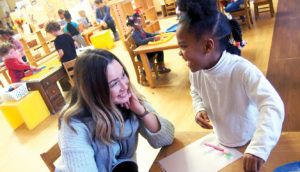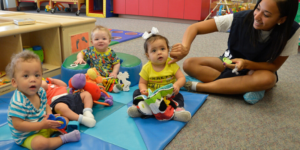
As many as 10% of children, and disproportionately children from low-income households, are affected by early language impairment. SMALL Talk, an ongoing Crane Center project, is looking to identify the early risk factors as the first step in preventing language impairment in these vulnerable populations.







